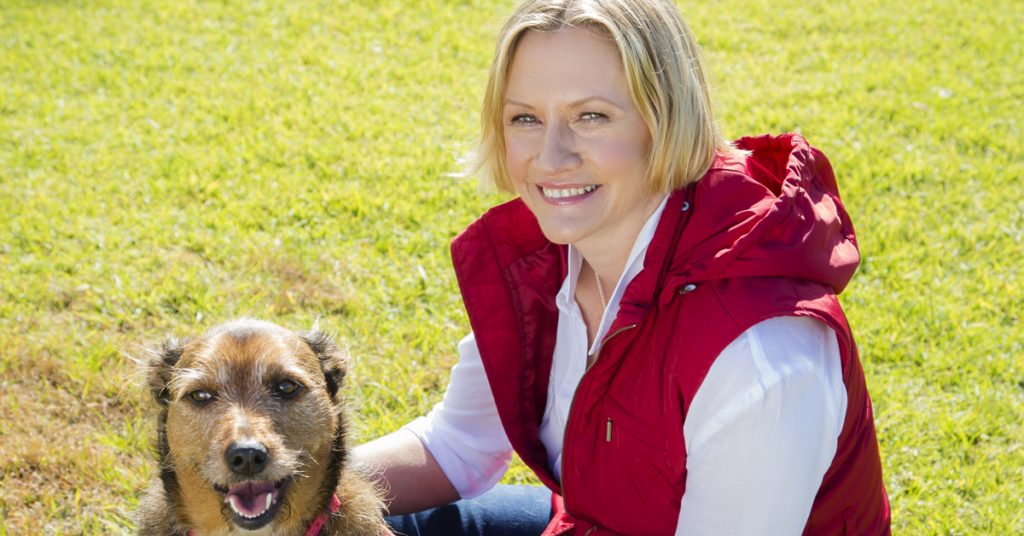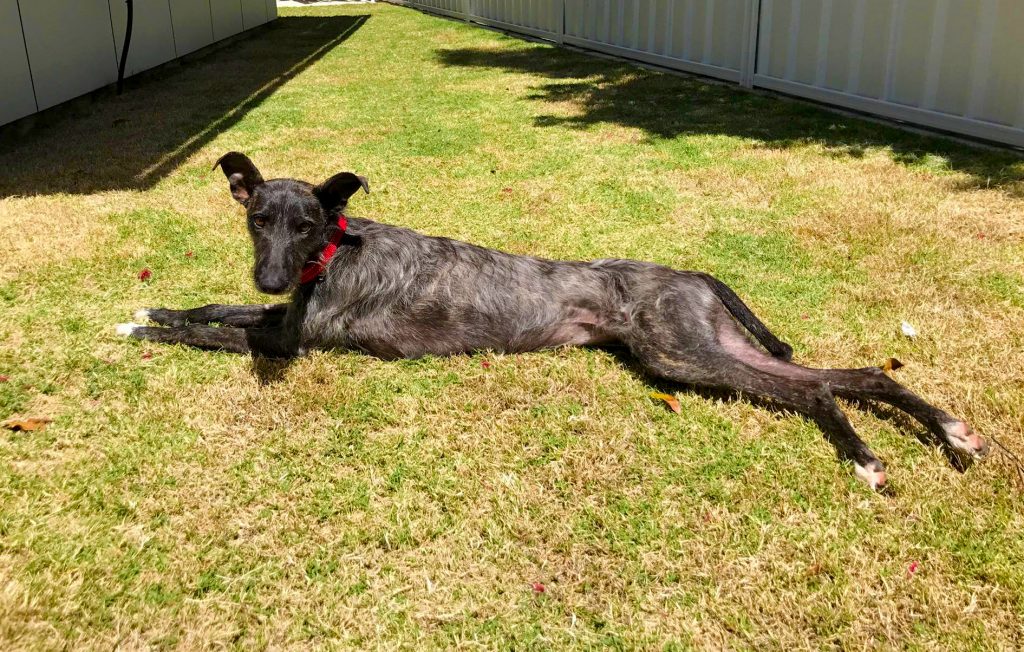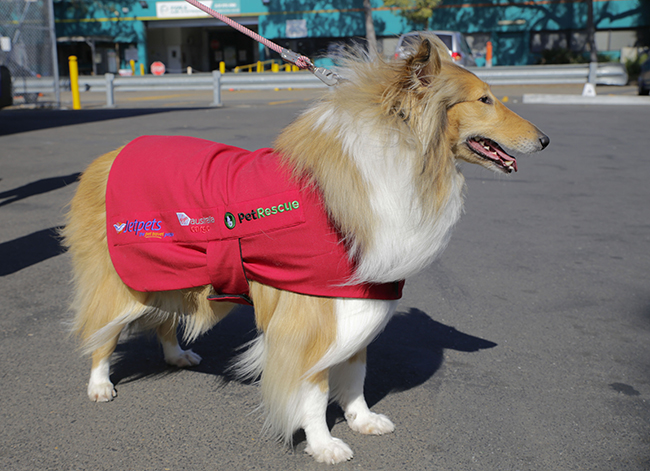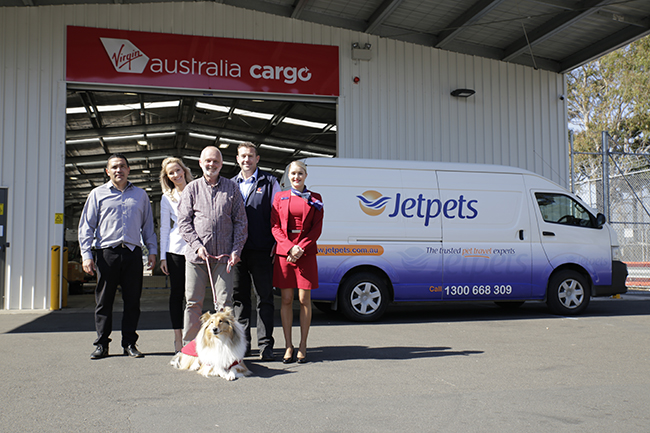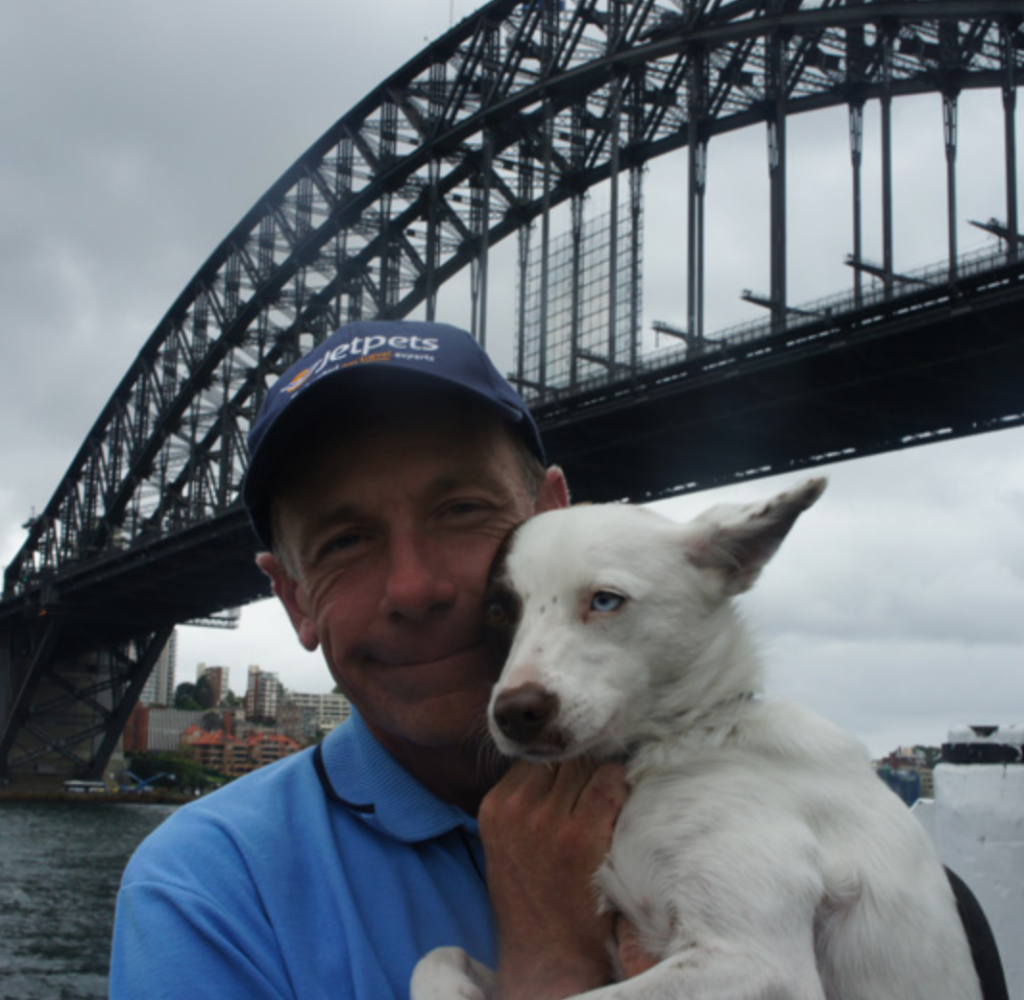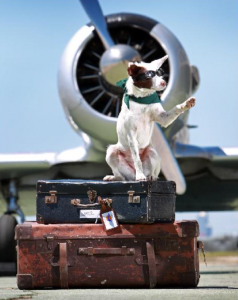Interpreting our beloved pet’s behaviour can sometimes be a puzzling challenge for the untrained and until our dogs are able to talk to us, (fingers crossed for soon), it’s best to rely on advice from professionals. Dr Jo Righetti is one of Australia’s leading pet behaviourists and has been providing pet lovers with insightful professional advice on their pets for over 20 years.
With Dr Jo Righetti joining us as a sponsor for the Jetpets Companion Animal Rescue Awards 2018 we thought it would be a great opportunity to ask Dr Jo Righetti if she had any tips or advice for those wanting to travel with their beloved pets.
- Relaxing your pet
Many pet owners report that when they are experiencing stress, often their pet will pick up on it and alter their behaviour. To ensure that your pet doesn’t take on your stress try to eliminate situations that cause you stress when at home with your pet.
Dr Righetti:
“Pets may pick up on your stress, so try to remain as calm as you can when travelling or preparing to travel. Make written lists and tick them off as you complete them. Double check your pet’s travel arrangements in the lead up to the day of departure. Check their ID. If you are confident in your pet’s arrangements, then you can relax and begin to enjoy your travel.”
- Avoid sedation
You might think sedating your pet during transit could avoid anxiety or stress but in fact sedating your pet can lead to serious problems arising during travel. When a pet is sedated they are more likely to have breathing interference or a reaction to the medication. Sedation also results in pets not being able to drink water provided in their crate leading to dehydration risks.
Dr Righetti:
“Most pets do not require to be tranquilized during travel. If you have an anxious pet, discuss with your veterinarian ways to relax your pet without tranquilizers.”
- Crate train before travel
Our pets can be more susceptible to stress and anxiety when placed in an unfamiliar situation such as a travel crate. You can show your pet that there is nothing to fear by spending some time crate training your dog. Jetpets can bring your travel crate to your door in the weeks prior travel to give you the time you need to acclimatise your pet to the pet travel crate.
Dr Righetti:
“Make your pet’s crate as pleasant as possible by introducing your pet to it in a gradual, positive way. Allow your pet to enter the crate on their own, enticing them with taste treats or a favourite toy. Place their bed or a blanket in there too. Each time they go into the crate, extend the time they spend there. Begin to close the door, taking care not to frighten your pet and, again, extend the time they spend in their crate.”

Watch our step by step crate training video
- Introduce new stimulus slowly
Many of our clients use our services when they are moving interstate or internationally, often for a job or life change. Sometimes this can lead to a pet becoming uneasy in their new surroundings. Slow it down and introduce new environments or a new home to your pet gradually. This can lead to your pet becoming more comfortable in their new surroundings.
Dr Righetti:
“When pets have anxiety or stress about any aspect of life, the best way to deal with this is through desensitisation. This means gradual and controlled introductions to the frightening stimulus. If your pet is moving to an area without a garden, for instance, then get them used to new ways of exercising prior to this change. If you have to set up a new home, then you may find it beneficial to board your pet for a few days or have them stay with a friend, while you sort out your living arrangements. Then you can bring your pet into their new but more familiar area where they have their bed, blankets toys and food dishes. And, of course, the most important thing in your pet’s life is you! Stay as calm as you can. Keep your pet’s routines the same.”
- Saying goodbye and saying hello
Saying goodbye to our pets to go to work can sometimes be difficult but what about if it is for a few days or even weeks? The trick here is to make it part of your pet’s routine well beforehand to avoid the puppy tears.
Dr Righetti:
“Say goodbye matter-of-factly to your pet. Practice beforehand if this is hard. Put your pet in their crate, say goodbye and quickly walk away. If your pet has had this done a hundred times before, they will not react. Plus, you can give them a treat to occupy them and make it positive. When you say hello, it’s difficult not to go over the top but this can create anxiety in your pet. So, keep calm and ensure you pet is healthy on your reunion and is safe when you let them explore.”
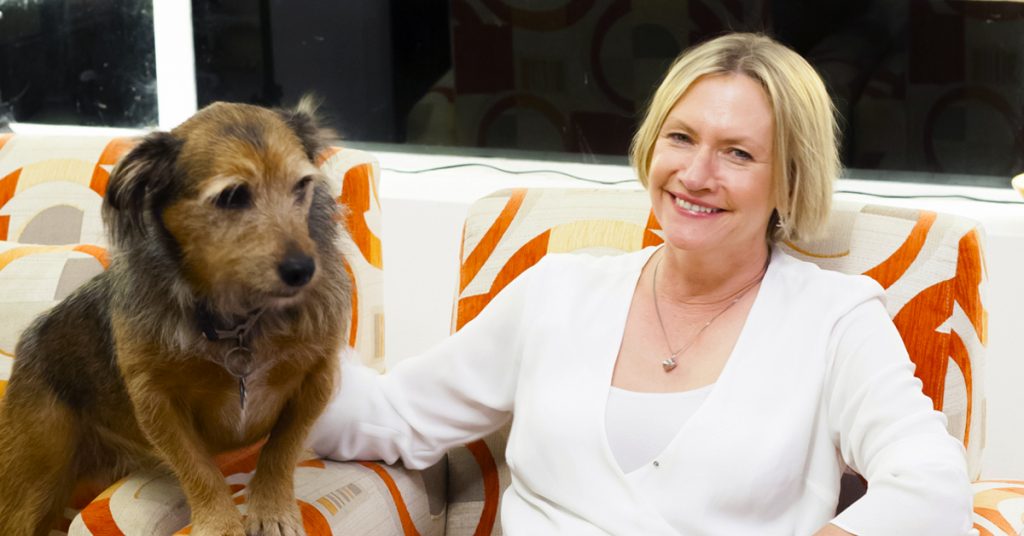
Doctor Jo Righetti is the founder of the fantastic pet resource petproblemsolved.com.au. With loads of professional advice and information on pet behaviour its your number one resource for any pet problems you may need solved.
*major airports in Australia

